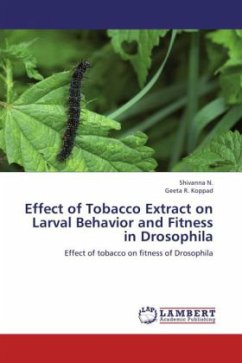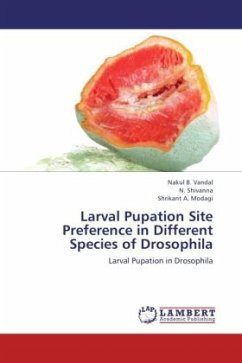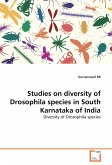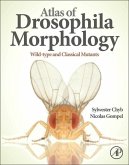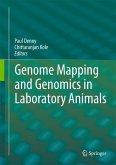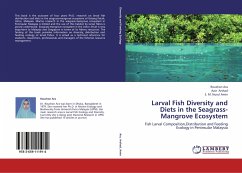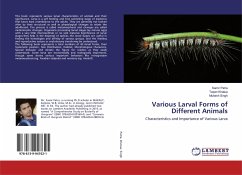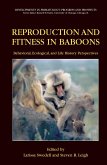Drosophila has been used as a pet model for more than a century in environmental monitoring studies. Tobacco extracts are used as insecticide since 1763 and still ranks as an excellent contact insecticide. The present study is carried out to analyze the effect of tobacco crude extract on larval pupation site preference, locomotion, larval proteins, fecundity and productivity in a few species of Drosophila such as, D. melanogaster, D. ananassae, D. simulans and D. bipectinata. The tobacco extract treatment altered the percentage of larval pupation on glass, media and cotton compared to control. The locomotary patterns like straight line, turns, headlifts and total distance moved by treated larvae varied significantly compared to control. In D. simulans and D. ananassae the protein fractions were varied in their rate of migration. The mating period is high in flies of the treated larvae than the control flies, the fecundity and productivity of flies of the treated larvae is less than the flies of control larvae. The tobacco treatment affects not only the behaviors of larvae but also affects the total fitness of the species.
